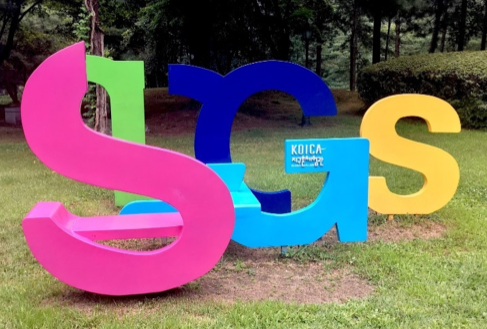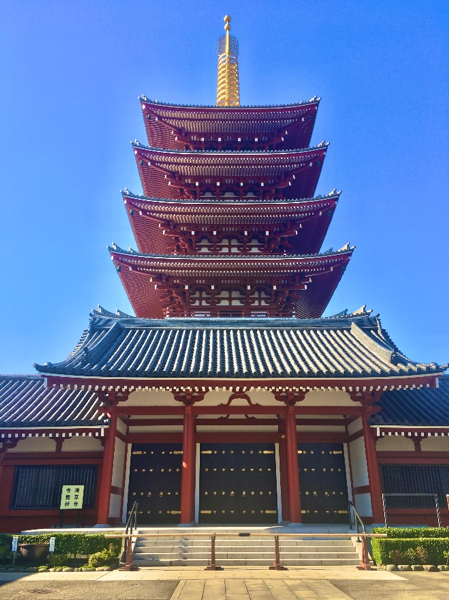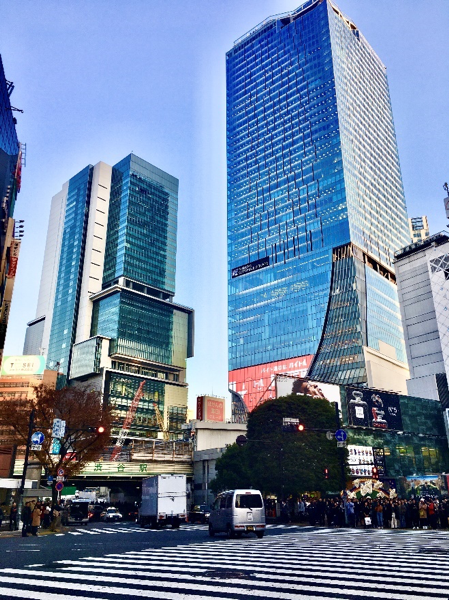by Jarret Fisher
jarret1.png
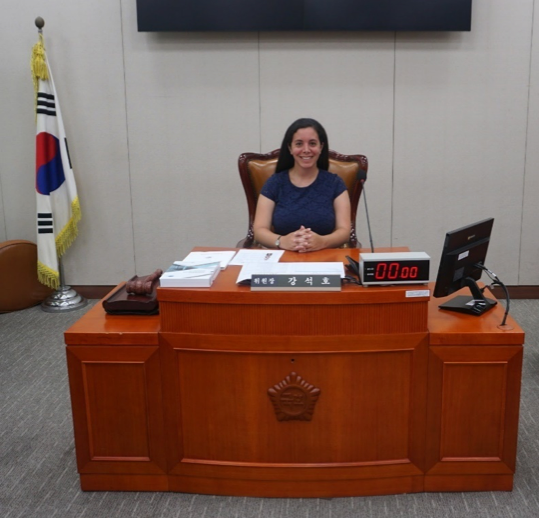 Republic of Korea National Assembly’s Foreign Affairs and Unification Committee Meeting Room
Republic of Korea National Assembly’s Foreign Affairs and Unification Committee Meeting Room
Origin Story
In Summer 2018, I participated in a little-known exchange program funded by the United States Department of State, and implemented by the Meridian International Center, called the United States Congress-Republic of Korea National Assembly Exchange Program. Every summer, this exchange takes 10 young American leaders and 10 young South Korean leaders to each other’s countries, to learn about one another’s government, foreign policy priorities, to explore the past, present, and future of our important bilateral relationship, and to take a deep dive into each other’s rich and diverse cultures.
jarret2.png
 Full cohort before meeting at the United States Department of State in Washington, D.C.
Full cohort before meeting at the United States Department of State in Washington, D.C.
It is an understatement to say this exchange program was a turning point in my life. I was interested in foreign policy before, but as a topic of conversation at the dinner table. I never knew I could make a career out of foreign policy, but after this exchange in South Korea, I felt confident in working toward a job in the international relations field.
Our Congress-National Assembly Exchange Program commenced right after the 2018 North Korea–United States Summit in Singapore. There was a lot of hope that a peaceful resolution to the Korean Peninsula conflict was in sight, and this narrative was a mainstay in the headlines for the duration of our exchange. It was incredible to set foot in the DMZ, which is the border between South and North Korea. We had additional meetings at the Ministry of Unification, Ministry of Foreign Affairs (MOFA), and Hanawon—where North Korean defectors go to prepare to transition into South Korean society. We even visited Pyeongchang—not to be confused with Pyongyang—where the 2018 Winter Olympics had recently been hosted.
jarret3.png
 American delegates with our South Korean liaison, Mr. Kim, in front of the National Assembly building
American delegates with our South Korean liaison, Mr. Kim, in front of the National Assembly building
Photos from visit to the Korea International Cooperation Agency (KOICA) in Seongnam, South Korea
One of my favorite aspects of the program was the cultural experiences. For example, on our last night in South Korea, we went to South Korean karaoke. It is different than karaoke in the United States; in South Korea, you rent a “noraebang,” which is a private room large enough for 15-20 people. My absolute favorite was trying many different foods in South Korea. We ate a lot of Korean barbeque, hot pot, teok-bokki (which I pronounce “toe-poke-ee”), and desserts. I tried hotteok, which is a pancake with different types of fillings. I also loved bingsu, which in its original form is plain shaved ice with condensed milk, topped with red beans. However, to be honest, I do not like red beans, so we went to a bingsu chain called Sulbing, and I ordered the green tea and brownie bingsu. It was delicious!
Becoming an Alumna
Soon after returning to the United States, I followed the instructions of our Program Director, Bogdan Banu, on how to formally register as a Department of State International Exchange Alumni. It begins on the website, alumni.state.gov. Once I created my account, I was thrilled to join this global community of over 300,000 international exchange alumni. At the same time, I followed the International Exchange Alumni social media accounts, on Facebook and Twitter.
jarret6.png
 Homepage of alumni.state.gov
Homepage of alumni.state.gov
Alumni TIES
As my first follow-up program, I participated in the U.S. Alumni TIES in March 2019 in Kansas City, Missouri under the topic of “Stronger American Cities: Closing the Skills Gap and Building Entrepreneurial Ecosystems.” This workshop was equally as life-changing as my original exchange program. I learned that entrepreneurship is not only for people who are starting a business, but rather that the entrepreneurial mindset must be learned by every human on the planet because it is imperative to constantly innovate and ideate creative solutions to the world’s most pressing problems.
alumnities.png
 Alumni TIES Logo
Alumni TIES Logo
In Kansas City, I had the privilege of joining American alumni from dozens of different exchange programs, who work in a variety of industries, of all different ages. Prior to the kickoff of the Alumni TIES programming, we were fortunate to attend an event called Road to GES Heartland. GES stands for Global Entrepreneurship Summit. GES is an annual event organized by the Department of State that brings together entrepreneurs from all over the world. In June 2019, GES was hosted in The Hague, Netherlands; therefore, the event in Kansas City was a lead-up to the actual GES, and was a forum to discuss entrepreneurship in the American Midwest. During the Road to GES Heartland, we were in the audience to hear both Secretary of State Mike Pompeo and then-Small Business Administrator Linda McMahon speak.
jarret7.png
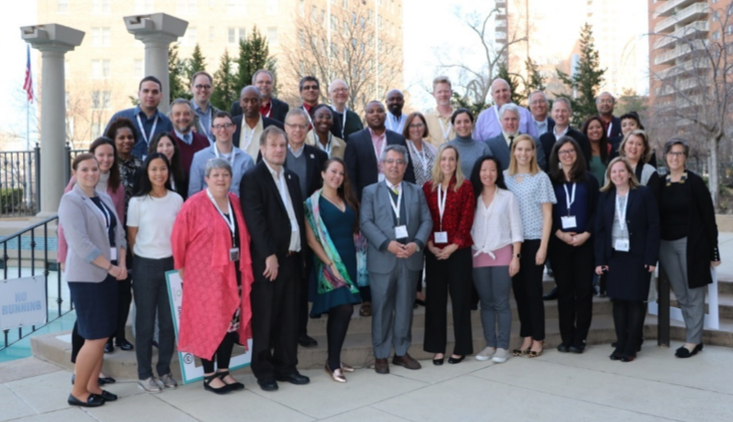 Participants of U.S. Alumni TIES in Kansas City, Missouri
Participants of U.S. Alumni TIES in Kansas City, Missouri
During Alumni TIES, we heard from an amazing lineup of guest speakers, both from the State Department and leaders in the entrepreneurship field at-large. The best part was the site visits, and my favorite site visit was to the Ewing Marion Kauffman Foundation, which is the largest non-profit organization in Kansas City. The inspirational individual for whom the foundation is named, Ewing Marion Kauffman, went to community college, raised $5,000 USD to start a pharmaceutical company, and eventually sold his company years later for $6 billion USD. When Mr. Kauffman sold his company, he rewarded his loyal employees by making 7,000 of them millionaires, which dramatically helped Kansas City overall.
ALLI Indo-Pacific Summit
Later in 2019, I came across another opportunity for both U.S. and foreign alumni. It was organized by the U.S. Embassy in Tokyo and facilitated by Cultural Vistas, and was called the ALLI Indo-Pacific Summit. ALLI stands for Advancing Long-term Leadership Initiative. I applied, and was fortunate to be selected for this workshop in Tokyo, Japan. It convened 40 young international exchange alumni from countries within the Indo-Pacific region.
Photos taken by Jarret while exploring Tokyo: (from L to R) Sensō-ji Temple, Shibuya Crossing, view of Tokyo Tower and surrounding neighborhood from Roppongi Hills Tokyo City View Observation Deck
During the Summit, we had many beneficial breakout sessions and workshops on best practices for community engagement, sustainability, public-private partnerships, project management, negotiations, disaster resiliency, cross-border collaboration, and entrepreneurship. At the end of the Summit, we were split into multi-country groups of three or four, and had several hours to put together a pitch for a project that advances the Indo-Pacific identity. Our closing activity was to present our proposals to staff from the U.S. Embassy. Every team’s project proposal was remarkable!
jarret11.png
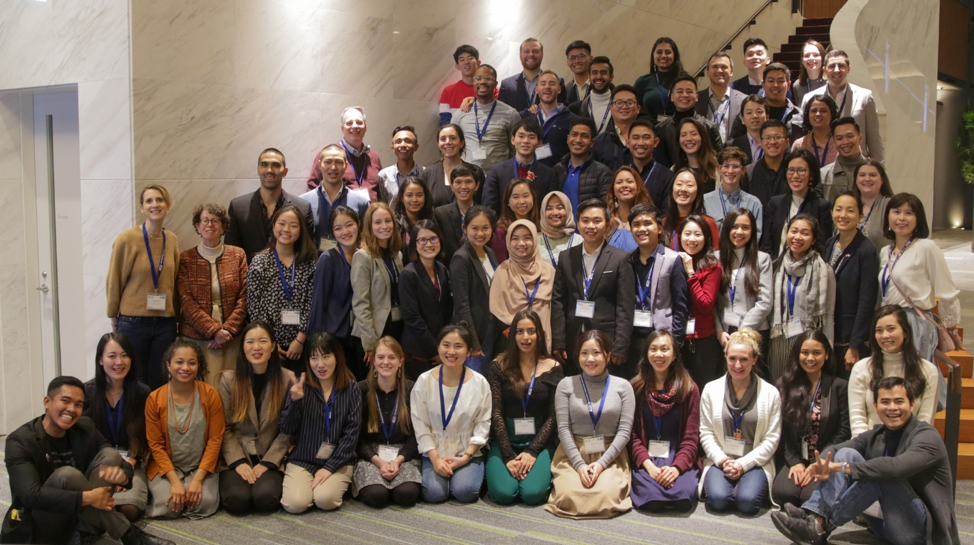 Participants and Facilitators during the ALLI Indo-Pacific Summit in Tokyo
Participants and Facilitators during the ALLI Indo-Pacific Summit in Tokyo
jarret12.png
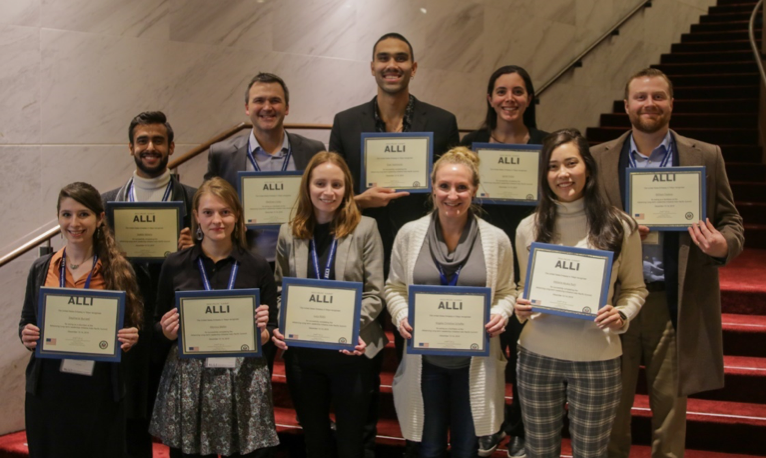 U.S. delegates to the ALLI Indo-Pacific Summit in Tokyo
U.S. delegates to the ALLI Indo-Pacific Summit in Tokyo
Small Grant Recipient: Indo-Pacific Youth Dialogue
After returning from Tokyo, my teammates and I decided to develop our project proposal further and apply for a small grant. We collaborated to complete the grant application, and in February 2020, we were notified that the U.S. Embassy in Tokyo had selected our project to be funded.
Our project is called the Indo-Pacific Youth Dialogue. It will be a three-day policy workshop for young leaders from the Indo-Pacific region, in conjunction with the twice-yearly ASEAN Summit. ASEAN is the Association of Southeast Asian Nations, and its secretariat is located in Jakarta, Indonesia. We have decided to focus throughout our event on six main policy areas:
- Climate change and natural disaster risk management
- Digital society and the Internet
- Entrepreneurship and jobs for youth
- Public health preparedness
- Religious tolerance, countering violent extremism, and peacebuilding
- Security and transnational crime
Every year, the member nations of ASEAN rotate which country serves as Chair. The Chair country hosts the two ASEAN Summits, as well as other Ministerial-level meetings throughout their host year. In 2020, Vietnam is the ASEAN Chair. We plan to host our inaugural Indo-Pacific Youth Dialogue (IPYD) in late 2020 in Hanoi, Vietnam, in advance of the 37th ASEAN Summit and 15th East Asia Summit. Our key output will be a Youth Policy Communique that the participants will collaborate to author and present to leaders of the Indo-Pacific countries. Crafting the Youth Policy Communique will be an exercise for young leaders to practice being solutions-oriented, and learn the steps of solving issues in their communities and countries through policy. The goals of our project are to promote youth involvement in governance and spread awareness about the Indo-Pacific as a unique and consequential regional bloc. As a team, we express our gratitude to the Department of State for the opportunity to design and implement our own exchange program for young leaders after having benefited from State Department Exchange Programs ourselves.
This blog post was also published on the Meridian International website.


